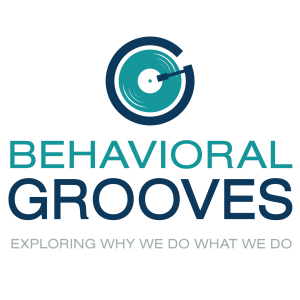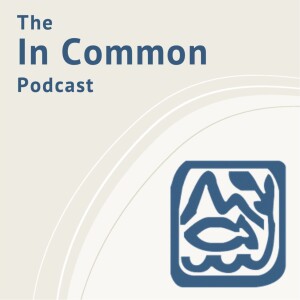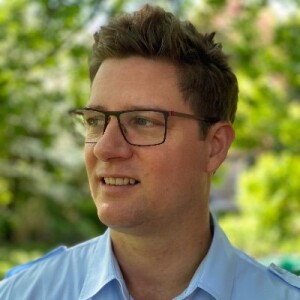In this episode, Divya Gupta speaks with Dr. Daniel Miller. Dan is an Associate Professor in the School of Global Affairs at the University of Notre Dame and has been extensively working on the socio-economic, ecological, and political dimensions of forests in tropical countries.
In this conversation, they focus on Dan’s projects on conservation legacy and his other project looking at the role of forests as pathways out of poverty. Later in the episode, they also discuss Dan’s new role as the coordinator of FLARE, which stands for Forest and Livelihoods Assessment, Research, and Engagement.
For his project on conservation legacies, the projects that Dan started as a graduate student in the west Africa region at W National Park, a park that spreads across the countries of Benin, Niger and Burkina Faso, Dan focussed on how protected area governance interfaces with international aid. Interaction on this topic was a great way to explore the critical question of what conservation funding really does for people and protected areas in tropical countries. Dan shares that international aid has disproportionate impacts on people; while it provides new sources of income to some with the creation of jobs in the areas like park management, monitoring, and tourism, these opportunities only extend to some in the community. In fact, with the implementation of conversation projects, and many lose access to the forest, thereby creating more challenges for them. Dan suggests that this happens because the aid has a tendency of what he refers to as— ‘missing the middle’. When implemented, he says that the aid programs often tend to partner with the national government, national park agencies, and forest departments, but rarely or never with the local governments. He says this is a problem because these local governments have a bigger impact on people’s lives. As Dan continues to extend his work on conservation legacies in other countries like Bhutan, Peru, and Madagascar, he is finding that while external intervention in the form of aid in conservation in low-income countries is important, it works best when it is inculcated in the local governance structures and can bring clear benefits to people.
In the discussion on Dan’s parallel project on forest-poverty relationships, where he is working with a large team of scholars looking at the impacts that forests can have on poverty alleviation in low-income countries. Dan shares that the greater vision that he has for this project is to highlight how forests can serve as pathways to prosperity. He suggests that changing the framing of forests for prosperity is important because in the larger policy discourse benefits of the forests is mostly linked to carbon sequestration when the reality is that forests provide critical socio-economic benefits to especially people in low-income countries. Dan emphasizes that it is important to mainstream these benefits.
In the end, they discuss Dan’s new role as a coordinator of FLARE. He talks about how the FLARE community has been catalytic for him in establishing networks and collaboration for meaningful research. He shares that as a coordinator, he aims to retain the great sense of community that FLARE already has and grow the community by opening to new partners like practitioners, donors, activists, and local community members.
References:
Miller, D.C., Mansourian, S., Gabay, M., Hajjar, R., Jagger, P., Kamoto, J.F., Newton, P., Oldekop, J.A., Razafindratsima, O.H., Shyamsundar, P. and Sunderland, T., 2021. Forests, trees and poverty alleviation: Policy implications of current knowledge. Forest Policy and Economics 131: 102566.
Miller, D.C. Rana, P., Nakamura, K., Irwin, S., Cheng, S.H., Ahlroth, S. and Perge, E. 2021. A global review of the impact of forest property rights interventions on poverty. Global Environmental Change 66: 102218.
Miller, D.C., R. Hajjar. 2020. “Forests as Pathways to Prosperity: Empirical Insights and Conceptual Advances.” World Development 125: 104647.
Miller, D.C. 2014. “Explaining Global Patterns of Aid for Linked Biodiversity Conservation and Development.” World Development 59: 341-359.
Miller, D.C., A. Agrawal, and J.T. Roberts. 2013. “Biodiversity, Governance, and the Allocation of International Aid for Conservation.” Conservation Letters 6(1): 12-22.
Agrawal, A., Chhatre, A., & Gerber, E. R. (2015). Motivational crowding in sustainable development interventions. American Political Science Review, 109(3), 470-487.
Oldekop, J. A., Holmes, G., Harris, W. E., & Evans, K. L. (2016). A global assessment of the social and conservation outcomes of protected areas. Conservation Biology, 30(1), 133-141.
Persha, L., Agrawal, A., & Chhatre, A. (2011). Social and ecological synergy: local rulemaking, forest livelihoods, and biodiversity conservation. science, 331(6024), 1606-1608.
More Episodes
037: Pracademics and patchiness with Jessica Cockburn
 2020-04-26
2020-04-26
 316
316
036: A social anthropological view on conservation and interdisciplinarity with Liana Chua
 2020-04-24
2020-04-24
 418
418
035: Bacteria, public goods, and Interdisciplinarity with Carey Nadell
 2020-04-20
2020-04-20
 308
308
034: Reflexivity and the digitalization of academia with Klara Winkler
 2020-04-16
2020-04-16
 237
237
033: Reflections on COVID19 from a sustainability science perspective with Henrik von Wehrden
 2020-04-13
2020-04-13
 267
267
032: Food systems, applied research, and open science with Meredith Niles
 2020-04-06
2020-04-06
 168
168
Insight #12: Jeremy Caradonna on the history of sustainability thinking
 2020-04-02
2020-04-02
 590
590
031: Food as a commons and changing food narratives in a post-COVID19 world with Jose Luis Vivero-Pol
 2020-03-30
2020-03-30
 678
678
Insight #11: Mark Lubell on the ecology of games and polycentricity
 2020-03-26
2020-03-26
 277
277
Insight #10: Krister Andersson on reframing deforestation
 2020-03-19
2020-03-19
 239
239
030: The politics of geoengineering and climate change with Ina Möller
 2020-03-16
2020-03-16
 310
310
029: Network analysis and qualitative data sharing with Steven Alexander
 2020-03-09
2020-03-09
 314
314
Insight #9: Juan Camilo Cárdenas on teaching with games
 2020-03-02
2020-03-02
 214
214
028: Governing renewable natural resources and institutional analysis with Fiona Nunan
 2020-02-23
2020-02-23
 355
355
027: Social-ecological modeling, family life, and heading back to Spain with Irene Perez Ibarra
 2020-02-17
2020-02-17
 301
301
026: Comparative social-ecological fisheries research with Emily Darling and Georgina Gurney
 2020-02-09
2020-02-09
 391
391
025: Case study databases in commons and social-ecological systems research -- an IASC webinar
 2020-02-03
2020-02-03
 331
331
Insight #8 - María José Barragán on Galapagos multi-stakeholder agenda setting
 2020-01-27
2020-01-27
 261
261
Insight #7: Neal Haddaway on how to do a systematic literature review
 2020-01-20
2020-01-20
 535
535
024: Craft beer and transdisciplinarity with Barry Ness
 2020-01-13
2020-01-13
 265
265
Create your
podcast in
minutes
- Full-featured podcast site
- Unlimited storage and bandwidth
- Comprehensive podcast stats
- Distribute to Apple Podcasts, Spotify, and more
- Make money with your podcast
It is Free
You may also like

The Poetry of Science


Behavioral Grooves Podcast


Hidden Brain


Something You Should Know


The Psychology Podcast


- Privacy Policy
- Cookie Policy
- Terms of Use
- Consent Preferences
- Copyright © 2015-2024 Podbean.com




 iOS
iOS Android
Android